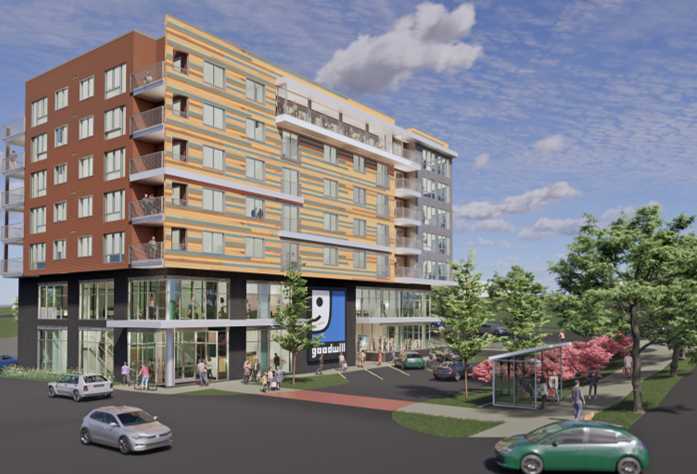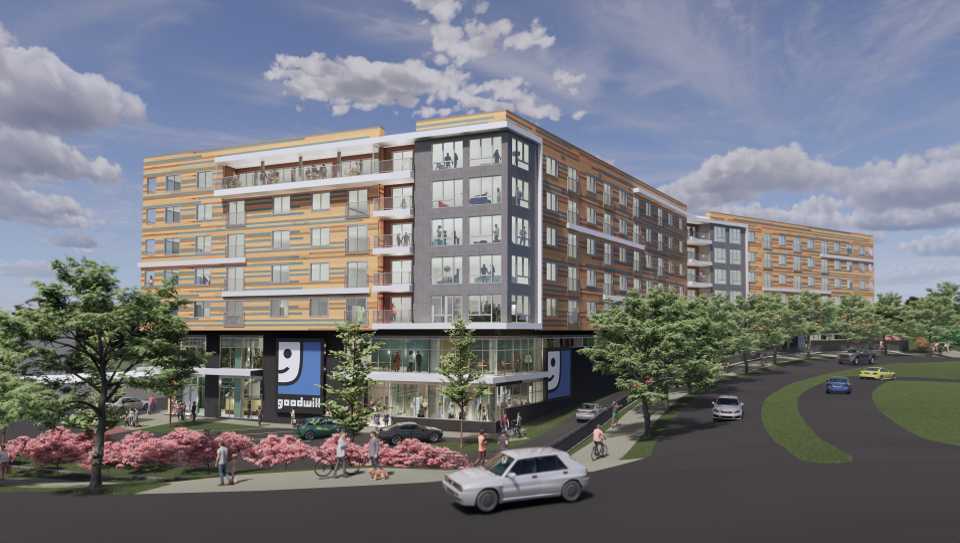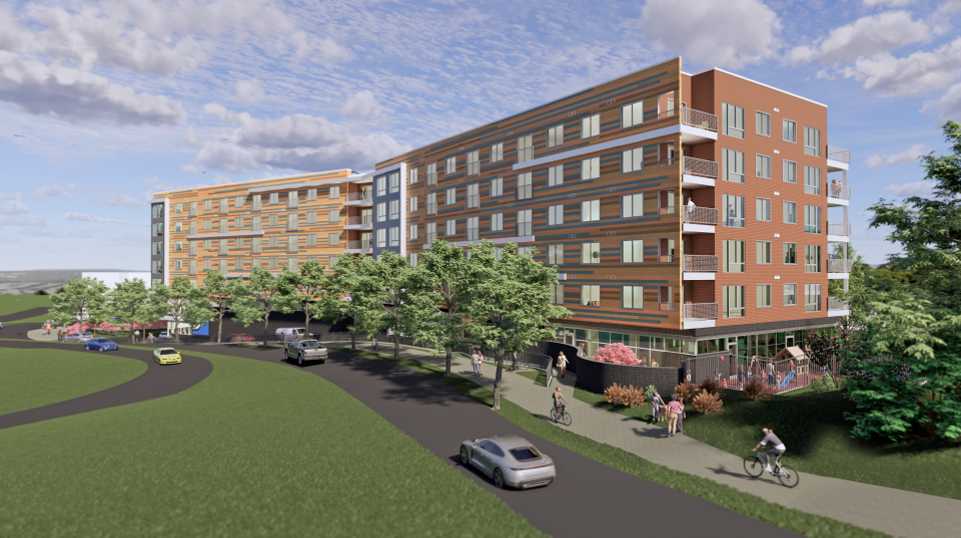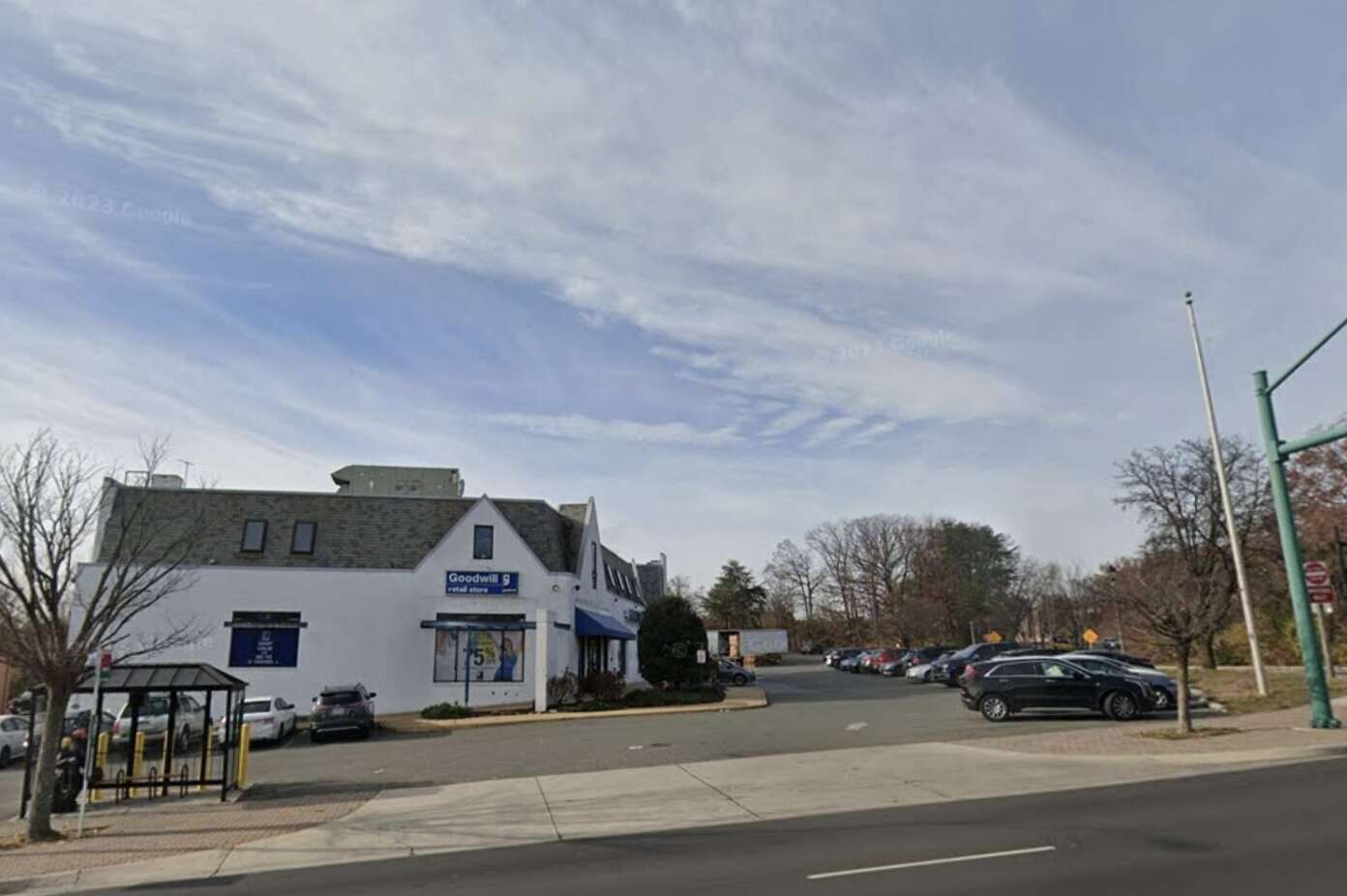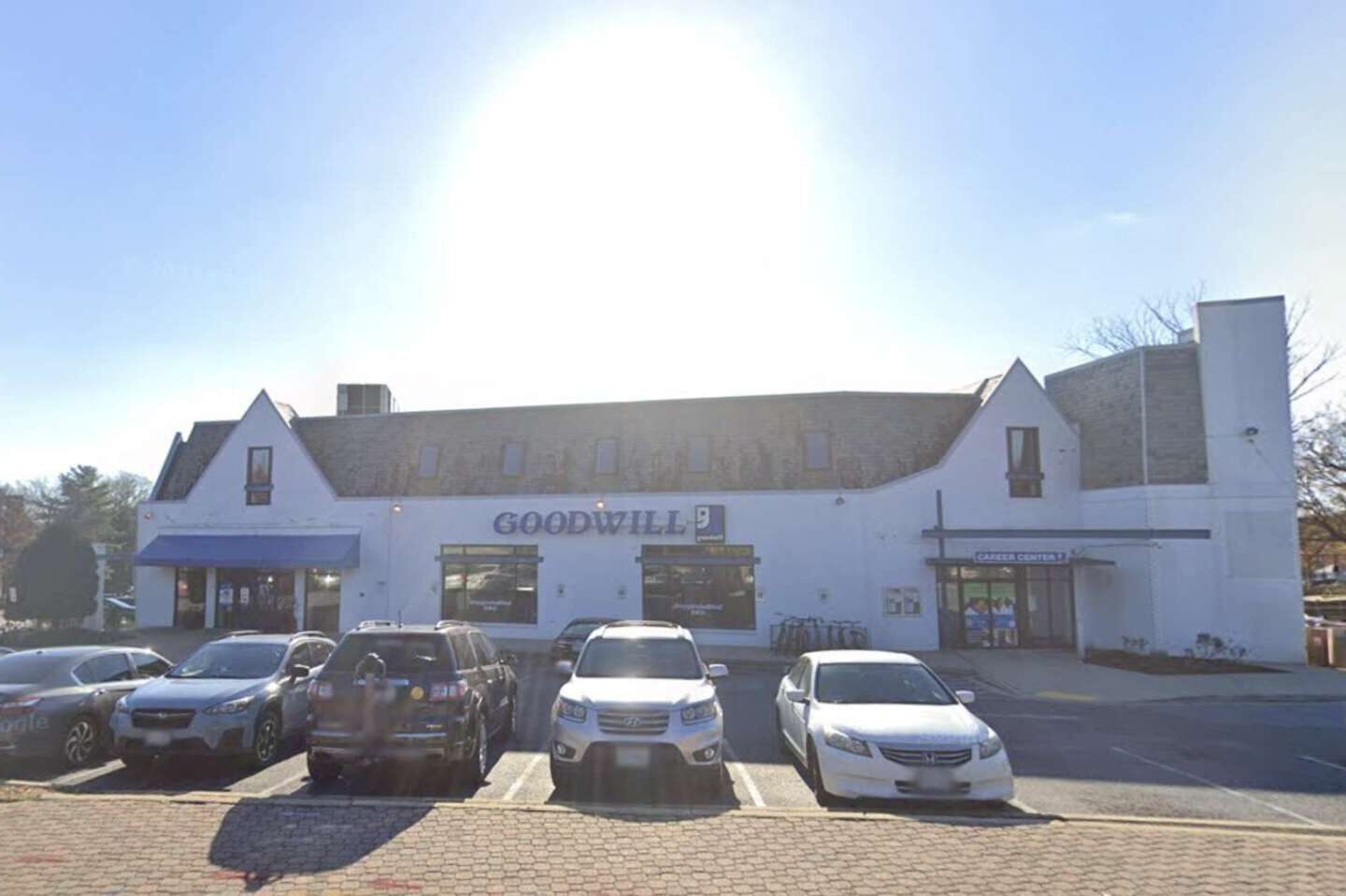(Updated at 12:30 p.m.) Arlington County is home to one of the busiest Goodwill donation centers in the country and this location, on S. Glebe Road, is now being teed up for redevelopment.
Last week, Planning Commission members recommended the Arlington County Board approve plans from Goodwill and affordable housing partner AHC to redevelop its storefront with a 6-story building consisting of a new retail and donation center, 128 units of affordable housing and space for a child care center.
The Board is set to review the proposal — which includes requests to rezone the property and label it a “revitalization area,” a designation intended to boost AHC’s application for low-income housing tax credits — on Saturday.
Still, some criticism over pedestrian safety for elderly residents and children tempered that enthusiasm, as did questions to affordable housing partner AHC Inc. about its ability to manage an affordable community following livability issues residents and advocates revealed at the Serrano Apartments on Columbia Pike.
“There’s just so much to love about this project,” said Planning Commissioner Leo Sarli. “We cannot have enough housing… childcare or upcycling — which is what Goodwill does — which again, keeps things out of landfill and has a massive environmental impact.”
Despite all this, he had lingering pedestrian safety concerns around the site entrance, given all the foot and vehicular traffic that apartments, retail and childcare are expected to generate. This led him to propose that the Planning Commission recommend the County Board defer its approval until Goodwill addresses them. While other commissioners likewise stressed their pedestrian safety concerns, his motion failed 9-1, with one abstention.
They later supported a resolution from Vice-Chair (and Arlington County Board candidate) Tenley Peterson to recommend county staff continue to work with the applicant to design streets around the building that use “pedestrian-forward design practices.”
“We don’t want to let the perfect be the enemy of the good,” she said. “This project offers so much value to the community.”
Land use attorney Andrew Painter said the proposal actually improves pedestrian safety by separating donor, resident and retail traffic, reducing surface parking from 54 spaces to four accessible ones and closing one of two existing site entrances.
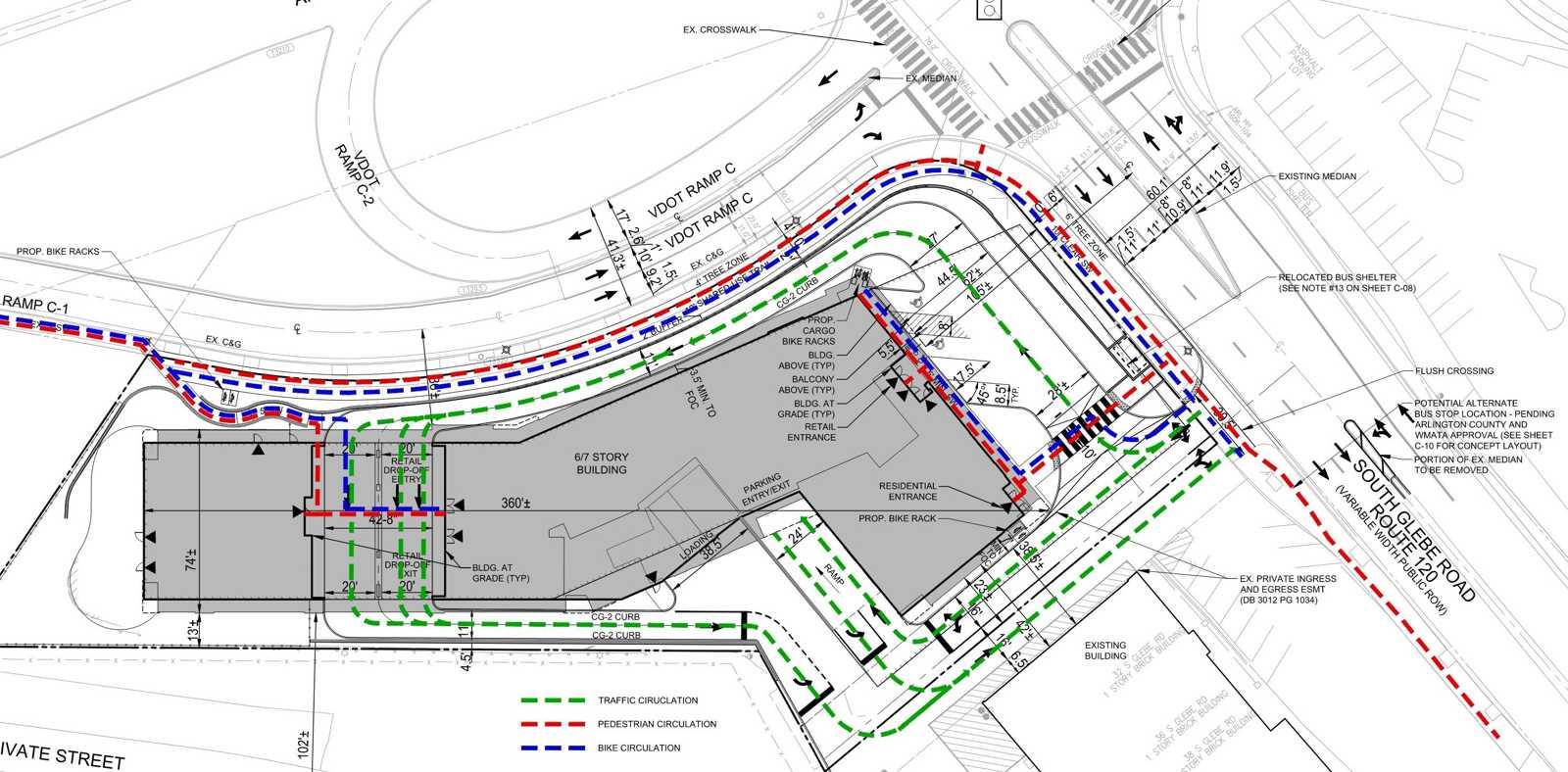
County staffer Kevin Lam, meanwhile, assured Planning Commissioner members that transportation staff thoroughly reviewed the proposal and do not believe the site poses a significant safety issue, though it is a “conflict point between pedestrians and vehicles.”
Like Peterson, the Transportation Commission approved the project, though several had pedestrian safety concerns. Chair Chris Slatt said commissioners hope these are addressed post-approval and commended Goodwill for transportation upgrades it has committed to, including one-way parking access, fewer surface parking spaces and a wider, raised sidewalk across the driveway.
In the letter, he chalked up the design flaws in the proposal to the site being an irregular, long and skinny parcel with no developed street grid.
We recognize that each of the seemingly substandard design decisions in this project seems to be a direct effort to address one of these many constraints — the large amount of asphalt is to accommodate the donation center. The circulation being above-ground rather than beneath the building is due to the financial realities of trying to achieve a 100% affordable project. The reliance on the Arlington Boulevard Trail for east-west pedestrian and bike circulation is because of the long, narrow size and shape of the lot. The prominent ADA surface parking is to honor and celebrate Goodwill’s mission.
On the topic of affordable housing, Planning Commissioner Eric Berkey, who previously sat on the Housing Commission, pointed his questions to AHC. He noted this is their first site plan that Arlington County is hearing since it faced scrutiny for poor living conditions — including mold, rodents and shoddy maintenance — and broken trust among residents.
“What commitments can AHC make to the community to ensure that we won’t have similar types of situations that we’ve had other properties in the past?” he asked.
In response, CEO Paul Bernard said several things have changed at AHC, including its leadership.
“I’ve been here for the last two years and, for the last year, we’ve really taken a look at two things: how we communicate and how we provide our services,” he said. “I would submit to you going forward, we’ve doubled down in terms of our ability and our desire to deliver the right types of mission. We are certainly resourced to do that.”
In terms of the Serrano, Bernard said AHC has made “a lot of strides,” investing in relationships with the residents, increasing communication and bringing “the right partners on board.”


